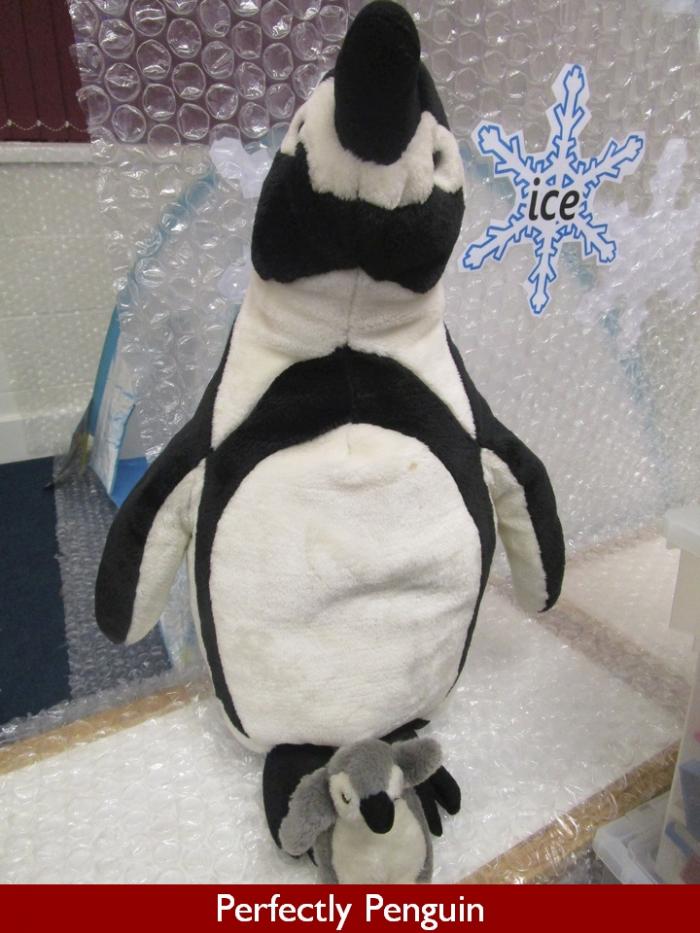
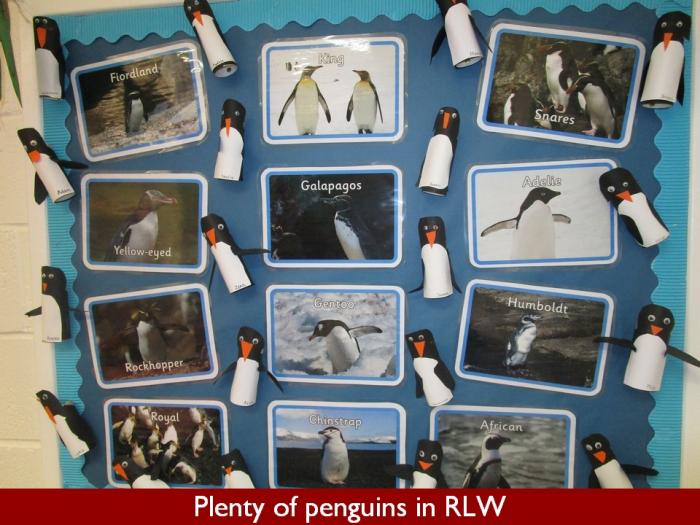


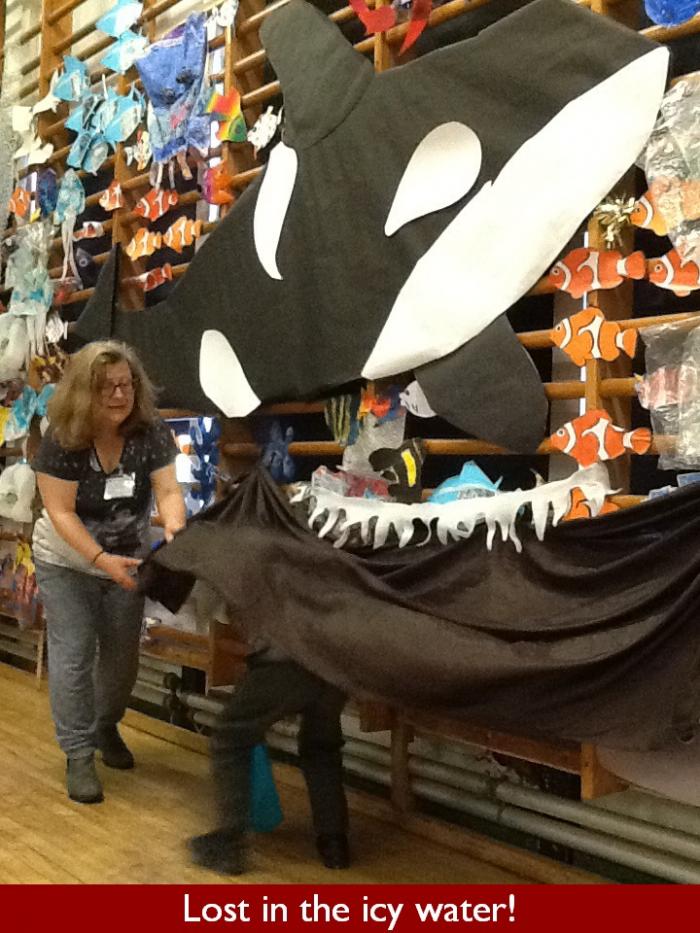
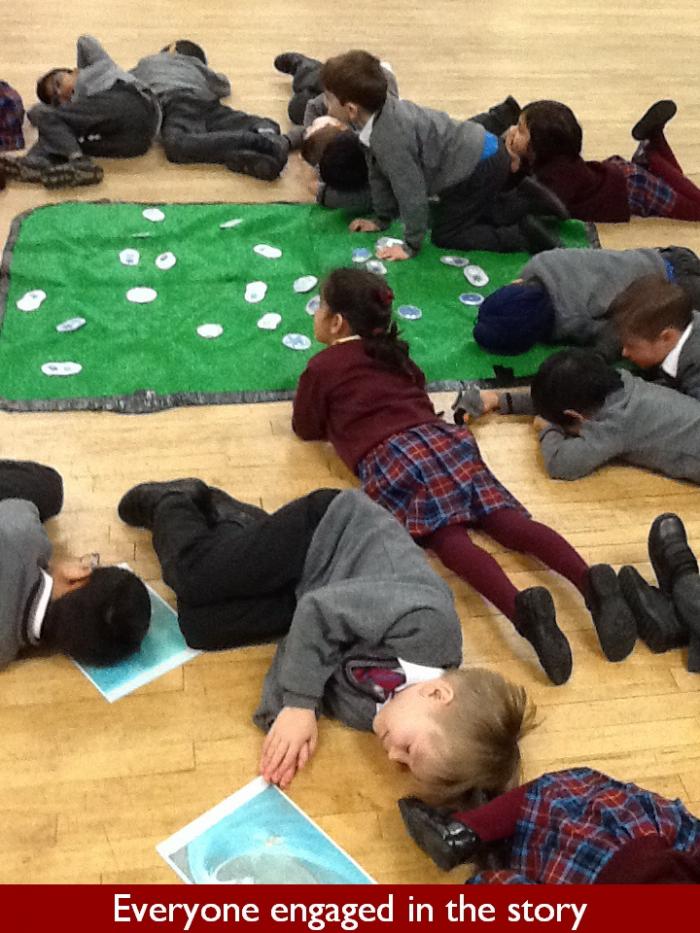

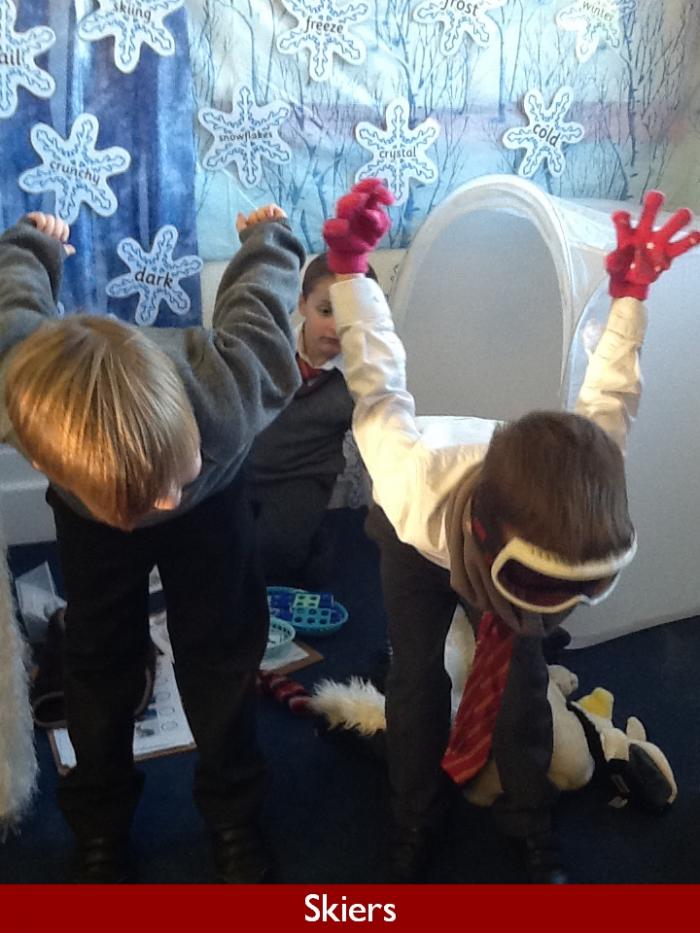
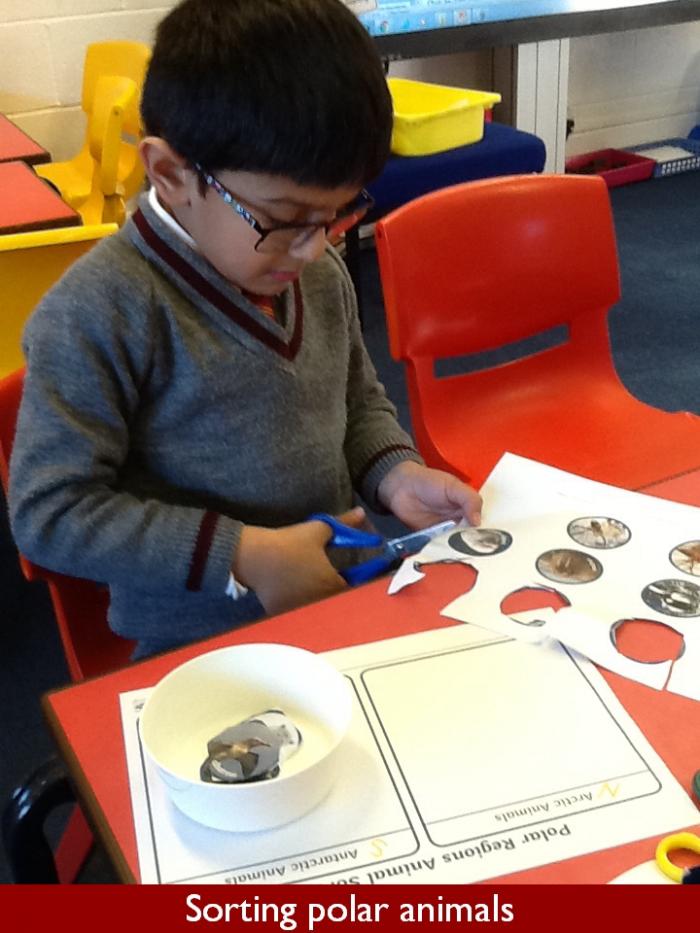
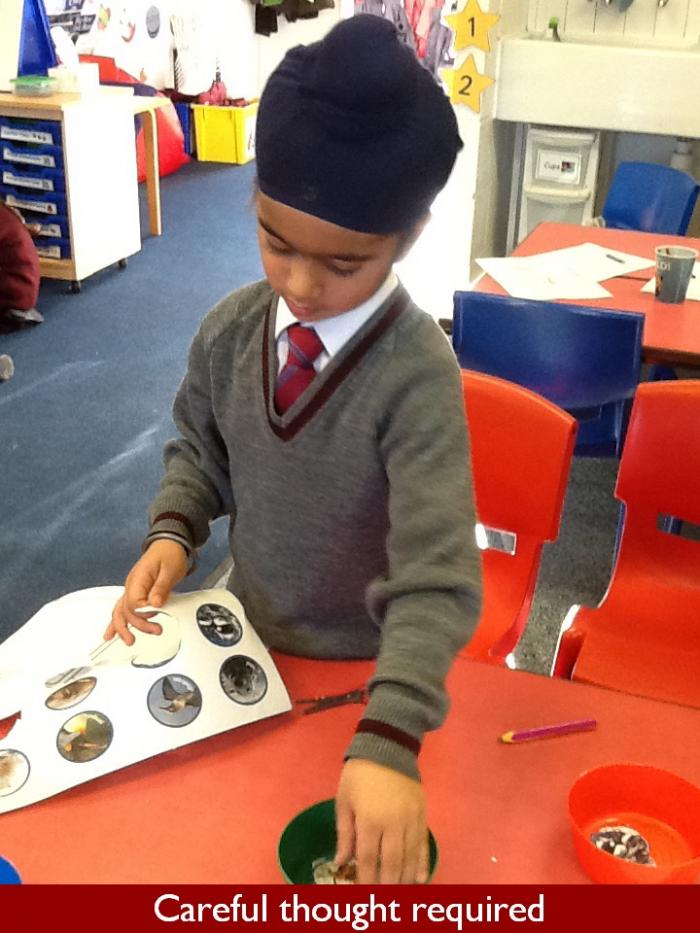
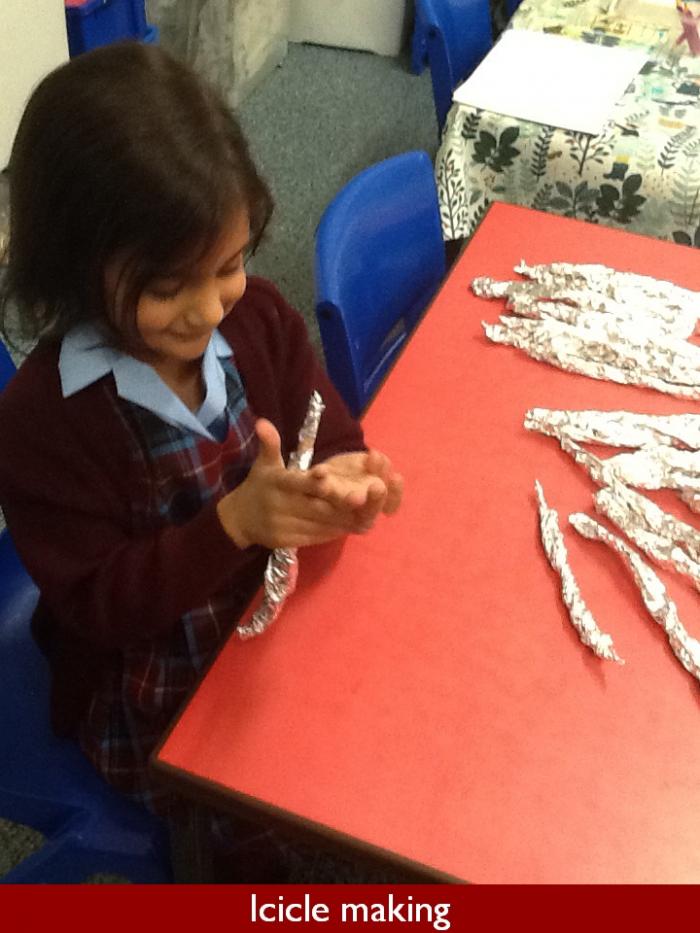
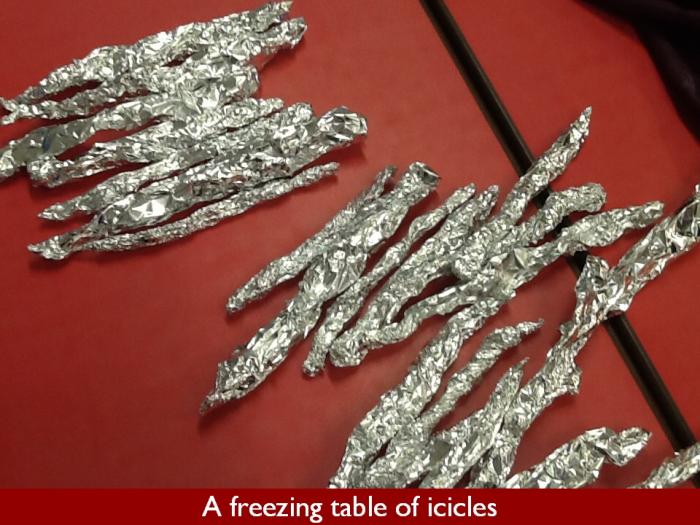
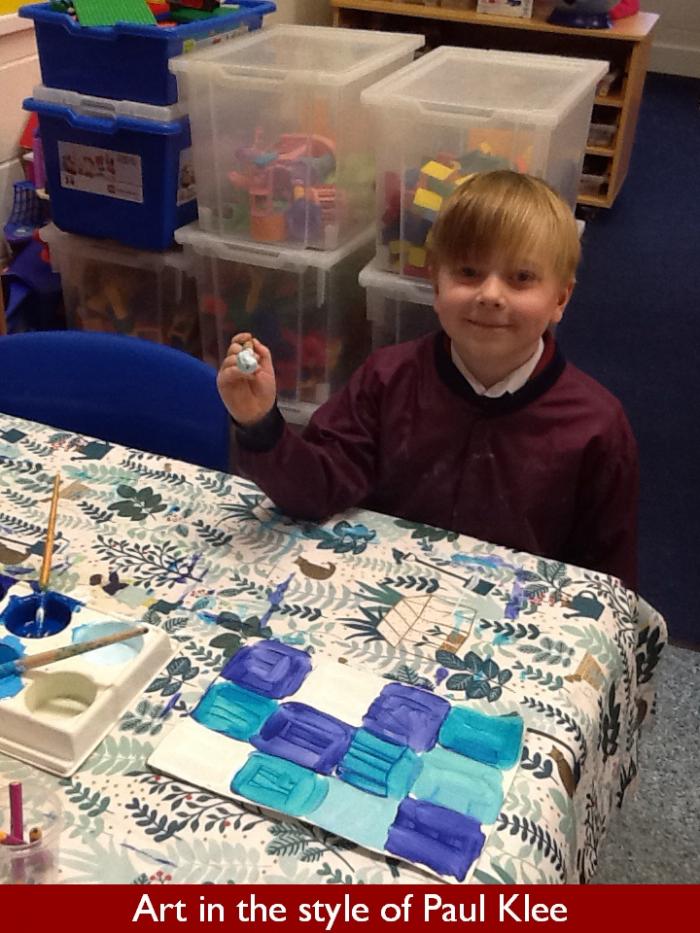
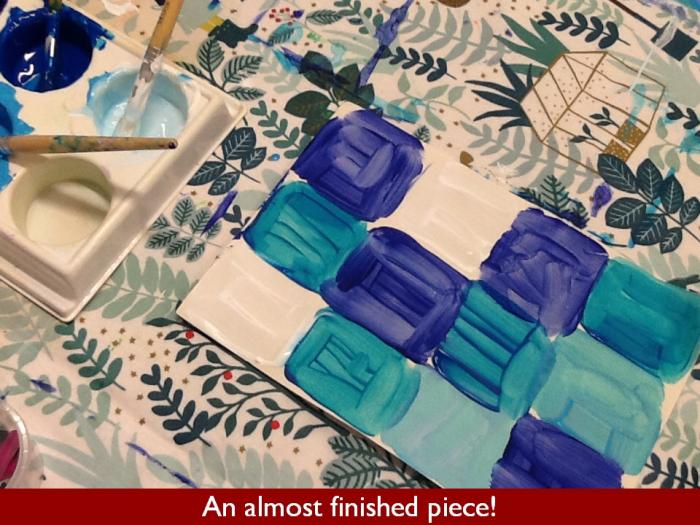

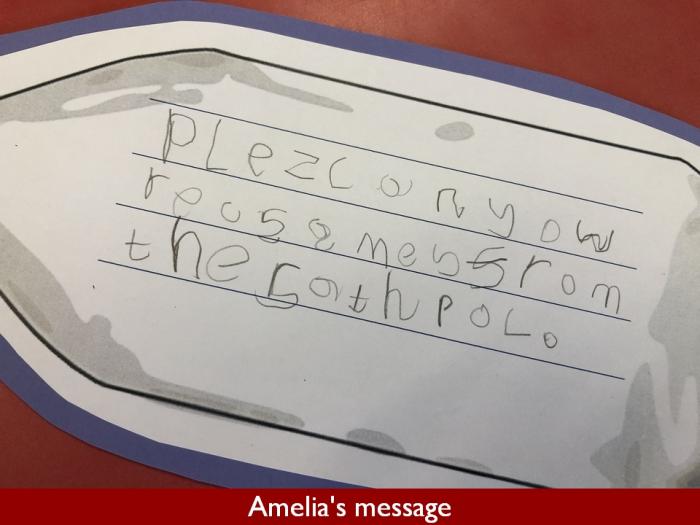
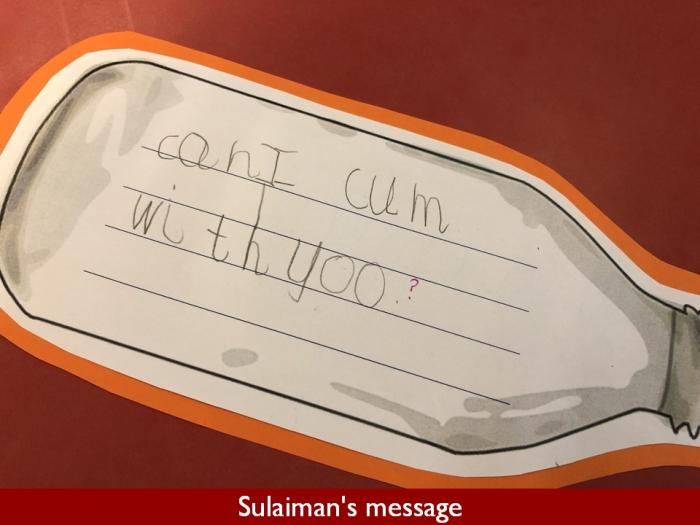

Perfectly Penguin
The teachers in Reception always like to make the most of the chilly winter weather by studying the coldest topic they can think of – Polar Regions! As ever, the topic is intended to be completely immersive for the children, so it’s virtually impossible to find an individual lesson in RLW about which to blog. Much more sensible to wrap up warm, take a deep breath and dive in!
It is gratifying to find some classic fiction texts at the heart of the children’s learning experience. The pupils in RLW have shared Mick Inkpen’s Penguin Small, which sets out to explain why penguins don’t live in the Arctic. In case you didn’t know, it’s because greedy polar bears drove them away. Except for Penguin Small, that is, who is terrified of water and was left behind. Luckily, he finally reaches his penguin brothers and sisters in distant Antarctica, with the help of a snowman, a whale and some friendly jungle animals.
More recently, the children have been reading Lost and Found by Oliver Jeffers, in which a boy unexpectedly finds a penguin and, believing it to be lost, attempts to help. Miss Wigmore used the text to explore the characters’ feelings. The fact that the boy went out of his way to assist the penguin, going so far as to row him all the way to the Antarctic, tells us immediately that he is a caring person. This is the very beginning of teaching the inferential skills we continue to work on right through Upper School and which are so vital in comprehension tasks.
Miss Wigmore then asked the children to focus on the character of the penguin and to consider how he would be feeling at different stages of the story. Of course, a great deal can be inferred from Oliver Jeffers’ brilliant illustrations. Having taken the penguin all the way to Antarctica, the boy was shocked to find that the penguin appeared sadder than ever. It turned out that he was lonely, rather than lost, and didn’t want to be left behind. All he wanted was for the boy to be his friend. Extending the learning further, Miss Wigmore and Miss Pearce helped the children to put into words what the penguin would have said to the boy by composing their very own message in a bottle.
This particular week in Reception featured a visit from the Freshwater Theatre Company, also taking inspiration from Lost and Found, as well as from the adventures of Deborah, Dora the Explorer’s sister. RLW and RSB learnt facts about penguins, polar bears and Inuits. They looked at the globe to understand the location of the polar regions. After that, they made an igloo, survived an expedition into a polar bear cave, rowed to Antarctica and, if all this wasn’t enough, they created a group story of their own.
Despite all this excitement, Miss Wigmore made sure that the children had plenty of time to work on their mathematical development, too. Number formation and counting strategies are ongoing and essential skills, building a foundation for children’s learning further up the school. As you might expect, these activities were given a polar twist. Cubes became icebergs; penguins and polar bears were lined up ready to be counted. The pupils in RLW have also been working on addition, combining two and then three sets of polar animals to arrive at a total, using all the correct mathematical language. Although Reception children are adept at matching numerals and quantities of objects, addition at this stage needs to be a practical experience for them. Teachers want to ensure that the concept of addition is thoroughly embedded before moving on to recording calculations simply as sequences of numbers and symbols.
No prizes for guessing what was the letter of the week in RLW – p, of course! Although this phoneme is straightforward, and is in fact one of the earliest ones taught in phonics, p is tricky in terms of letter formation because the capital and lower case letters appear identical. Even in Upper School, children can become muddled since they find it hard to come to terms with the fact that the stick of the capital P balances precariously on the line instead of hanging beneath it. Letter formation is underpinned by the development of fine motor skills. The children had the opportunity to make icicles out of foil and to pick up pretend ice cubes with tweezers. Miss Wigmore tells me this was much more difficult than it sounds, but worth the effort as it is an important life skill, designed to help avoid spillages at the salad bar or even at a dinner party!
All week the classroom had a polar feel to it. You will notice from the photographs how the children have had to put on their warmest clothes to enter the RLW igloo. Milo, who is something of an expert, was on hand to give skiing lessons, advising the other children on their technique. Meanwhile, in PE, the pupils tried to move around the gym like different polar animals, adopting the heavy stride of a polar bear, the waddling of a penguin and the slithering of a seal. They even flew like an albatross, which proved to be exhausting as well as challenging because the albatross spends almost all of its time in the air! With Mrs Pemberton in the art area, children made 3D penguins and explored the work of the Swiss artist, Paul Klee, whose boxy style was straightforward for the pupils to replicate, using chilly colours, of course. Finally, on Friday, Mrs Flower helped everyone make iceberg meringues. It was fascinating to watch how the eggs changed as they were whipped, developing a sheen as icing sugar was gradually added. Although the meringues have been gobbled up, I know the teachers are busy putting the children’s work on display, so please try to find a moment to stop by and see what they have been doing.